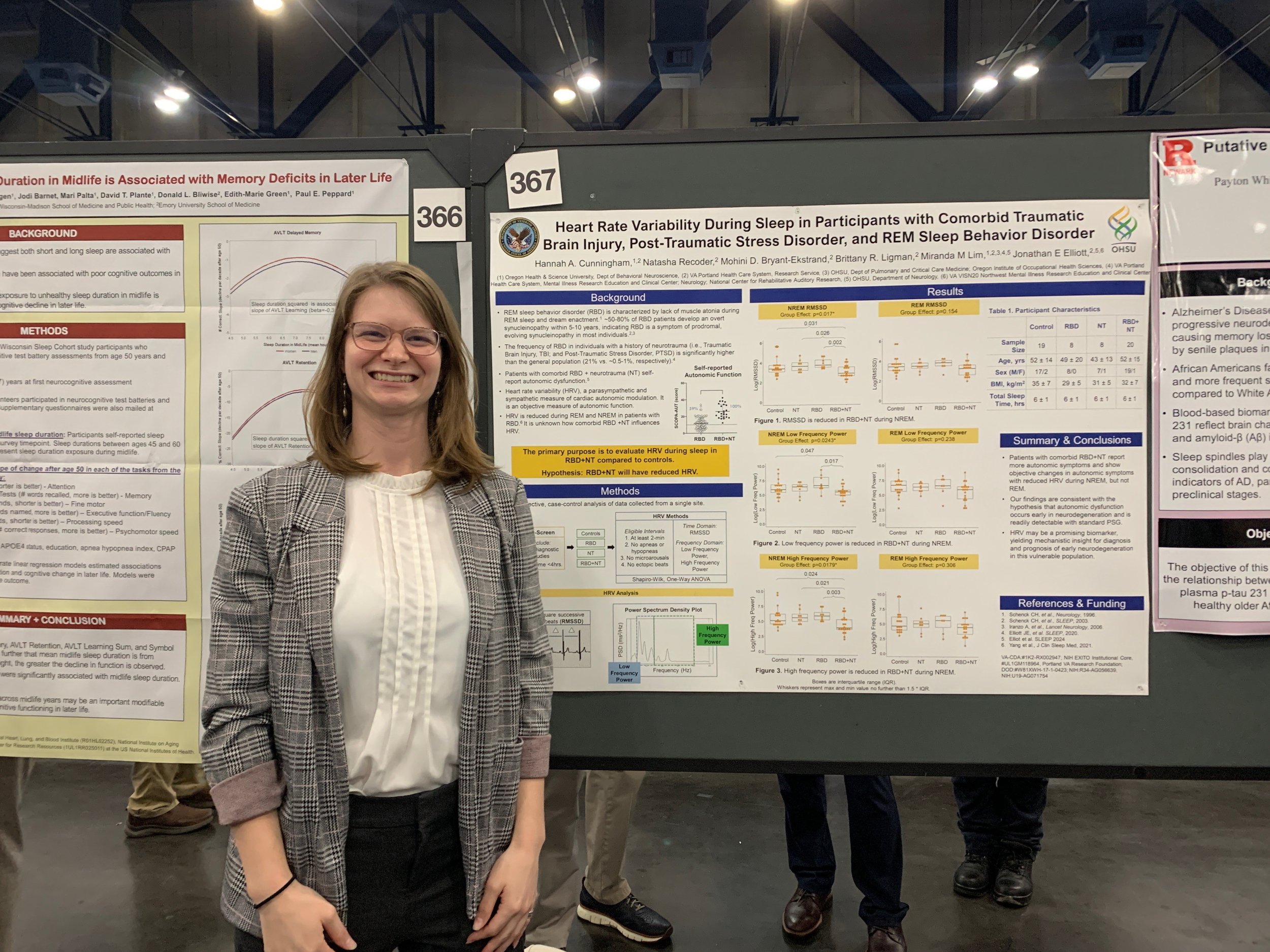Heart Rate Variability During Sleep in Participants with Comorbid Traumatic Brain Injury, Post-Traumatic Stress Disorder, and RBD
Hannah Cunningham, Oregon Health & Science University
NAPS Investigator, Miranda Lim, MD, Hannah Cunningham, and a team of researchers from Oregon Health & Science University conducted a study to compare heart rate variability during sleep in patients with both RBD and neurotrauma (RBD+NT) in comparison to only RBD, only neurotrauma, and controls. Heart rate variability (HRV) is a measure of cardiac autonomic modulation of heart rate, which is an objective measure of autonomic function.
Results: These data suggest significant reduction in HRV in RBD+NT, indicating greater autonomic dysfunction in these individuals compared to controls or either condition alone.
Why it’s Important: These findings indicate that autonomic dysfunction occurs early in neurodegeneration and is readily detectable with standard polysomnogram (sleep study). HRV may be a promising biomarker to detect early neurodegeneration.


